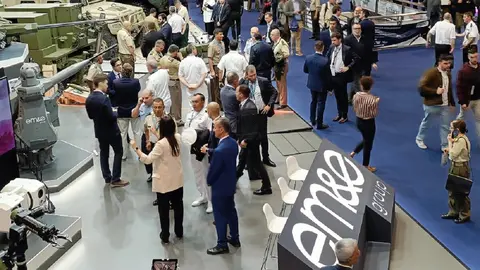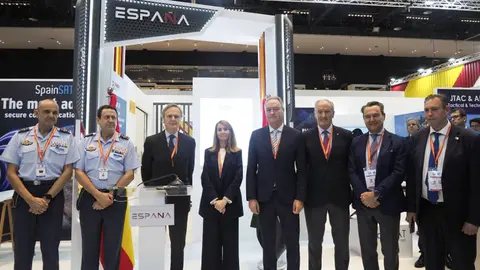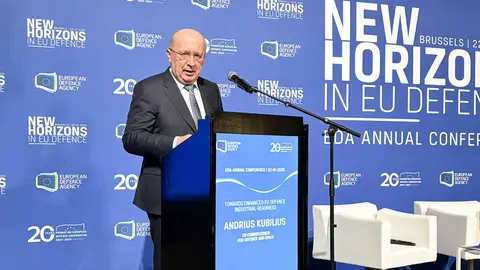General Ivorra's recipe for revitalising Spain's defence industry ecosystem
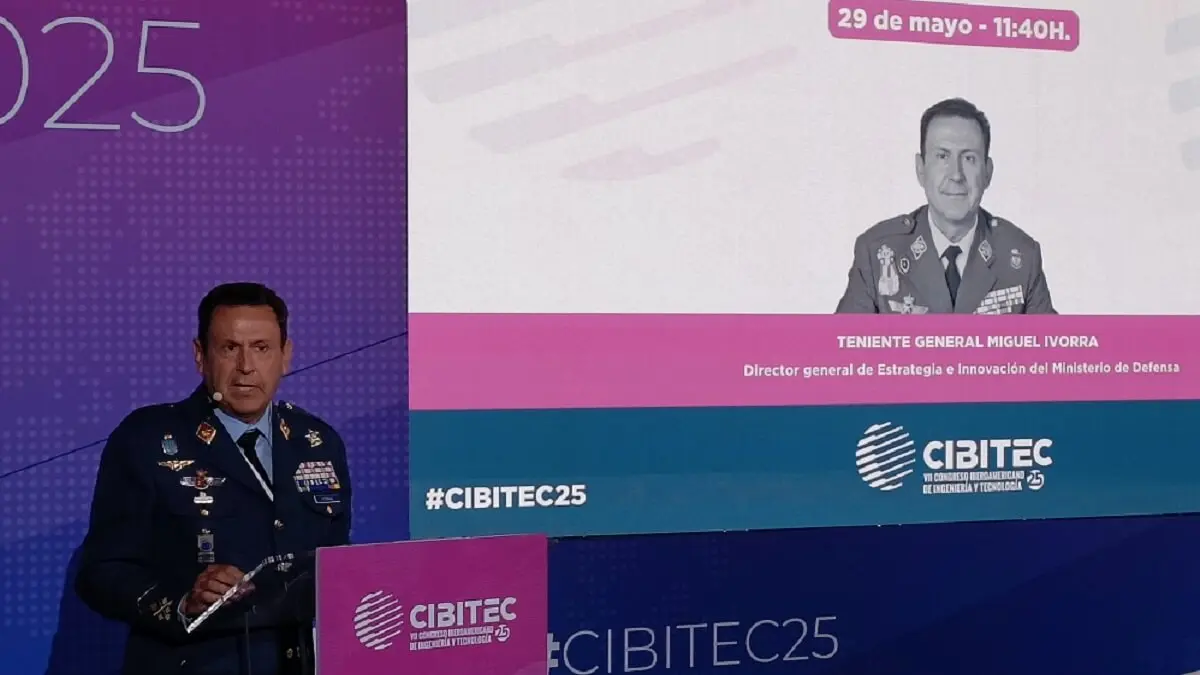
The defence industry is called upon to play a ‘central role’ in the current global geostrategic context. The main reasons for this are its direct contribution to national security, its role as an economic driver, its capacity to promote technological innovation, revitalise the industrial fabric, generate skilled employment and strengthen Spain's strategic autonomy.
These arguments were put forward by the senior military commander at the helm of the Directorate General for Strategy and Innovation in the Defence Industry (DGEID), Air Force Lieutenant General Miguel Ivorra, during his speech at the Defence Industry Forum held on 29 May as part of the 7th Ibero-American Congress on Engineering and Technology, CIBITEC 2025.
Before an audience gathered in Madrid and packed with executives from numerous industrial sectors, General Ivorra stated that a ‘political and social consensus has emerged that translates into a sustained increase in defence efforts’. He therefore believes that this is the right time to "build a competitive, innovative, sustainable and inclusive defence industry, which is not a rhetorical aspiration but a strategic necessity that requires leadership, commitment and a shared vision.

In the European Union, the Commission chaired by Ursula von der Leyen has given its full attention and support to defence programmes with the aim of ‘consolidating industrial capabilities, coordinating procurement and optimising military production across the EU’. ‘In Spain, we share this vision,’ the director confirmed, ‘and we want to play a leading role’.
The general revealed that the main lines of action to achieve this are based on a ‘long-term strategic vision and coordinated action in the short and medium term’. These objectives aim to strengthen defence industrial policy, while leading the transformation of the national technological and industrial base to make it ‘more robust, more innovative, more internationalised and, above all, more cohesive’.
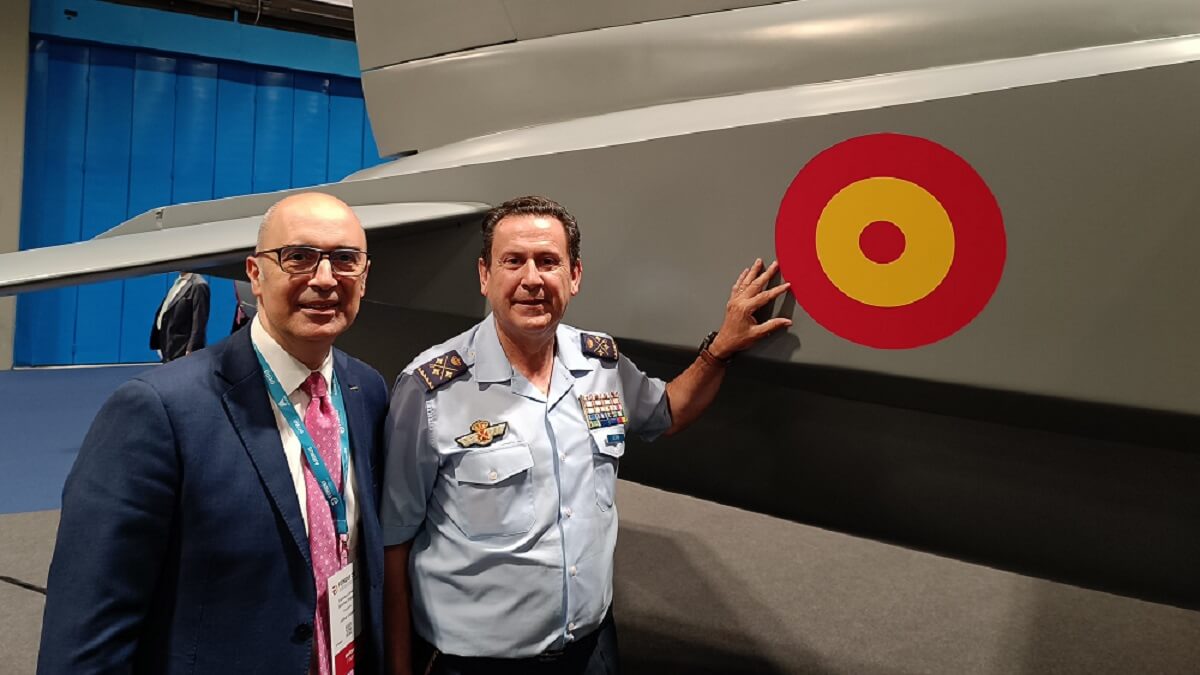
Applying a culture of trust
To achieve the above objectives, the new architecture designed by the DGEID is based on a recipe with different ingredients. The first is to ensure that industry, universities and administrations define and share objectives, ‘so that we can all work with the same compass’. The main tool is the Defence Industrial Strategy published in 2023, which ‘aligns priorities and identifies key capabilities, while channelling public and private resources towards specific and measurable objectives’.
A second prescription involves ‘developing sovereign technological capabilities’. Among these, the DGEID has set its sights on disruptive technologies, including artificial intelligence, advanced sensors, unmanned systems, robotics and cyber defence equipment, smart materials, and distributed command and control systems.
General Ivorra insists that ‘we have to reduce our technological dependence on third countries,’ which, in addition to being a technical objective, ‘is a strategic imperative.’ Achieving this requires investing in our own capabilities, promoting key technologies and ensuring that their development takes place within the national ecosystem.
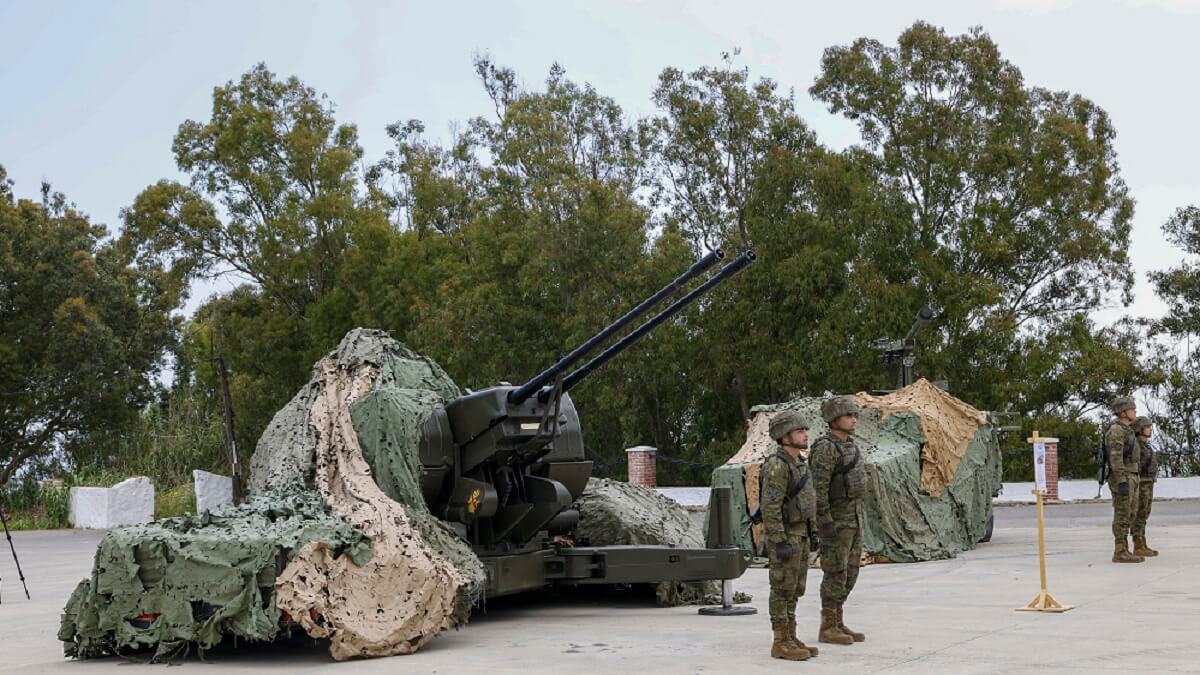
To sustain and enhance the technological and industrial base of defence, the recipe is to ‘consolidate an inclusive and competitive ecosystem’ that allows for the integration of large, medium and small companies, universities, technology centres, start-ups and entrepreneurs. The European consortia promoted by Brussels have shown that they ‘are more creative, more resilient and more effective,’ General Ivorra said.
Internationalisation ‘with clear, coordinated and constant institutional support’ is also described by the head of the DGEID as a ‘strategic’ priority. Participating in global supply chains, forming part of European consortia, attracting foreign investment and attending international trade fairs ‘is essential’.
Two master formulas are of the utmost importance. One requires simplifying administrative processes, facilitating access to financing and providing technical advice, ‘especially to small businesses and start-ups, so that they are in a position to participate fully in national and international programmes’. Another recommends that innovation be subject to ‘ethical and environmental sustainability criteria, including in terms of energy efficiency’.
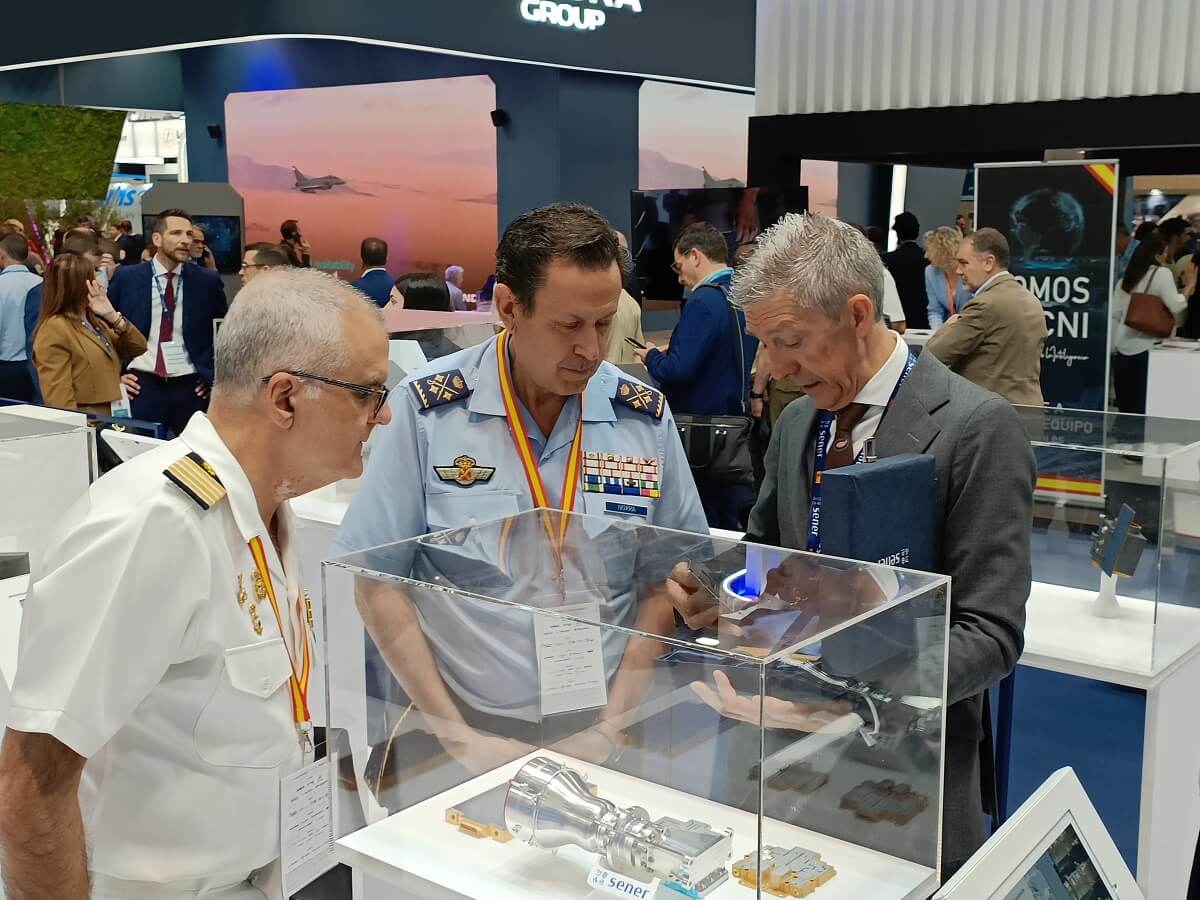
The industry representatives' point of view
To act as an excipient and, as such, give consistency to the final invigorating substance, ‘a culture of trust’ must be added. Firmly convinced that ‘the future cannot be improvised or waited for, but must be planned and built with vision, courage and integrity’, General Miguel Ivorra argues that the defence ecosystem, in order to maximise collective effort, must foster ‘stable relationships, clear rules of the game and mutual commitments’. He sums it up by saying that ‘collaboration requires trust, and trust is built on transparency, professionalism and results’.
National business leaders also expressed their views at CEBITEC on how to increase competitiveness and innovation. In the opinion of the executive president of the Oesia Group, Lluís Furnells, the greatest challenge to be addressed is ‘meeting the expectations and demands of the various European governments’. In the case of Spain, ‘delivering by the end of the year on the commitments made to meet the 2% target and ensure long-term sustainability’.

For the vice president of Airbus Spain for Global Programmes, Marta Nogueira, the first of the major challenges facing the European sector is ‘to overcome the huge technological gap that separates us from the United States, a reality that we have to face and in which Airbus maintains a firm and committed stance’. However, ‘we must provide the Spanish Armed Forces with the products with the technological advantages they need today’.
The managing director of GDELS-Santa Barbará Sistemas, Juan Escriña, pointed out that in order to become sovereign and provide the military capabilities required by our Armed Forces, Spain must have an industrial fabric that is "completely innovative and developed, both in terms of defence and in other areas. He assured that ‘we are already in a position to respond to new circumstances, to work side by side on major European projects and to offer products that are immediately available’.

When asked about his company's impact on Spanish society, Navantia's executive chairman, Ricardo Domínguez, pointed out that his company ‘is more of a driving force than a driving force’. With shipyards in Cartagena and the bays of Ferrol and Cadiz, it has a workforce of ‘around 5,600 professionals and growing’, but every day between 13,000 and 14,000 people enter its shipyards.
Under the slogan ‘Engineering, industry and sustainability’ in its 2025 edition, CIBITEC is an annual meeting organised by the College of Industrial Engineers of Madrid, whose dean is Fabián Torres, and by the association of the same name, whose president is Emilio Mínguez.


